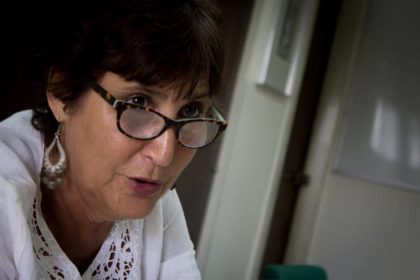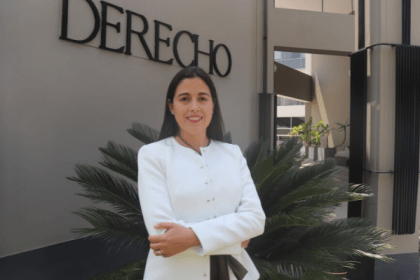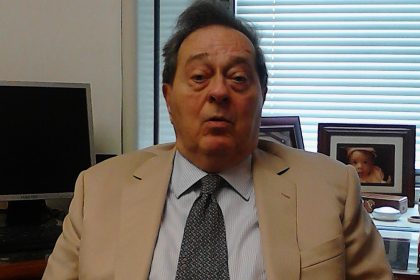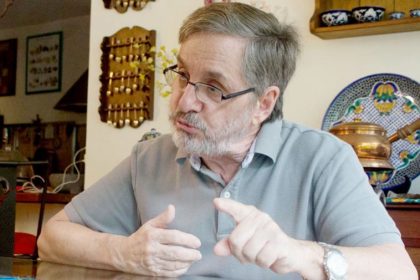Researcher and political analyst for Crisis Group. He carries out human rights promotion activities on the Andes region, focusing mainly on the Venezuelan political situation. He has dedicated almost 40 years of his lifespan to reporting on Latin America on a wide variety of media, including BBC World Service, The Guardian, Newsweek, The Miami Herald and The Economist. In the 80s, he covered the wars in Central America and during the 90s he was a correspondent in Latin America for The Guardian, based in Mexico City. He is co-author of two books on the region, including a two-volume political dictionary of Latin America and the Caribbean. We talked with Gunson about the subsequent situation of the country after the electoral simulation on 20 May.
– The fraud of 20-M seems to have closed the range of institutional and democratic outlets to the crisis. What do you think will be the possible short-term scenarios at the beginning of the second term of Nicolás Maduro?
Certainly, the democratic and institutional outputs seem very limited, if not closed. The institutionalism in Venezuela has been dismantled, except, obviously, the National Assembly, which still has its legitimacy but not operability, because the other institutions do not allow it to comply with its functions. The election of 20 May by itself was not a solution, even if there had been better conditions than those prevailing on that date. I say this because the government have given enough signals of no intention to hand over power, therefore, that electoral process was an event to break in the governmental apparatus but it did not happen, mainly due to the lack of unity and there was not a joint strategy among the different opposition factions. This division is still a factor almost as important as the lack of institutionalism and leaves us two possible outcomes. On one hand, the government under Maduro or under any other person follower of Chavez’s ideology will remain in power indefinitely despite the disaster, despite the social and economic catastrophe. On the other hand, there are reasons unrelated to the will of the opposition, such as a major economic breakdown that causes the government’s implosion or a foreign intervention. Obviously, none of these options are desirable. We, at Crisis Group, still believe that we can still work for a solution and not an outcome.
– Given that scenario, what will Maduro do?
Maduro has not given any indication of wanting to change his policies, rather the opposite. Everything we have seen before, during and after his “official” victory points toward the same direction. He intends to deepen the same economic policy that produced the terrible situation we are seeing and, despite the release of political prisoners and dialogue, up until now, we have seen really inconsequential things following what we have always seen: a government that wants to give an “image” that it is willing to dialogue, but it does not intend to lay anything substantive on the table. Unless things are happening within the government or its coalition, I see the same trajectory and that trajectory in visual terms is not horizontal. It is going directly to a void, among other things because we are in hyperinflation, which is not arithmetic but exponential and the government is aware of that, but it does not understand or does not want to correct.
– We are waiting for a “black swan…”
Yes. This is an essentially weak government, lacking popular support, with an extremely complicated situation within the armed force, which is isolated internationally, but it has control over the levers of power until now. Presumably, if anything unexpected happened to such a weak government, it could be destabilised in such a way that it would simply collapse, because there are external and internal forces making pressure and waiting for the opportunity to impel its fall. But, at the same time, there are many cases in recent history where a regime -under these very same or similar conditions- is maintained over time because the forces do not finish to align. If we take a look at the external situation, the government has never been so isolated, external pressure is strong and growing, but internally the opposition is divided and weak. External pressure by itself will not produce a change of government, not without the internal participation of an alternative force that could replace the government at a given moment. In the case of internal forces, there are sectors openly calling for external intervention, but have not thought about the day after. If we take the case of Panama in 1989, keeping the distances and differences, one of them was that there was a legitimate government elected in Panama, which had been unknown by Noriega. In that intervention, the dictatorial military regime was decapitated and the president who had been elected was sworn in. Here, there is no clear constitutional route for the same collapse of institutions, which further complicates the possibility of a negotiated solution.
The international pressure
– What do you think should be the role of the international community in the face of the Venezuelan crisis?
We believe that the measures that have been applied so far are the correct measures: individual sanctions, freezing of assets, the prohibition of entry for certain members of the government, in addition to the financial sanctions of the government of the United States. But, I reiterate that world experience shows that sanctions alone are not enough. The government has many reasons to stay despite all the pressure, mainly because its fall would face possible charges of illicit enrichment, violation of human rights, drug trafficking, etc. So, where would be the incentive to negotiate an exit? This makes politics very difficult, both internally and externally, to facilitate that exit.
– Is it possible to promote transitional justice mechanisms?
It is possible that it is being done, but when there are accusations of crimes against humanity, it is more difficult. Although not all the members of the government are accused of those crimes and that is where there could be a possibility of a break between the most committed and those that could be saved under a transitional justice system.
– To what extent economic sanctions do not end up causing greater hardship to the population and, in the Venezuelan case, consolidating the government’s control over the population and the benefits it can provide?
That is the reason why Crisis Group has opposed an oil embargo. It is inevitable that financial sanctions will also end up affecting the population, but we are clear that the government does not seem to care. There is no easy answer to that reality. On the one hand, we must avoid the type of sanction that is directly and immediately translated into a population that is already sufficiently impoverished. However, the government spends the money it has on things that are not for the benefit of the population. They recently bought 450 million dollars in oil to give away to Cuba, which is part of what they need to continue to help them stay in power. It is also necessary to clarify that Venezuela’s situation is not a consequence of the sanctions and there are actions that must be avoided to avoid direct damage to the population, but this country cannot keep in the hands of an incapable and indolent government, because obviously there is no solution to the social and humanitarian crisis that does not include its replacement.
– According to your experience, what are the human rights that are most at risk with the increase of authoritarianism and how to mitigate the damage?
Authoritarianism always violates the most intangible rights such as the right to freedom of expression, the right to demonstrations, rights that do not figure among the priorities in the hierarchy of people’s needs. At the beginning of Chávez’s government, it was heard, by those who defended him, that what really mattered was health, education, food, the more basic, the more tangible rights and that the rest was a concern of the middle class. Now we are seeing that when freedom of expression starts being prohibited, media begins to be closed, freedom to demonstration is prevented and all this ends up affecting the most basic rights. When you do not have food, medicines, education, hospitals; you realise what you have lost, because you cannot complain. There are no instances to protect you, you have nowhere to turn: The Ombudsperson does not defend you, the Prosecutor’s office protects the guilty ones and then you realise that you had to defend intangible rights because there is no way to restore your basic rights without them. This is an authoritarian government with clearly totalitarian tendencies.
In Chávez’s time, it was an authoritarian government with popular support. It was something that political scientists call “Competitive Authoritarianism”. The administration in office has no support and what remains is repression, closing more and more spaces. In this scenario, a gradual restoration of institutionalism is very difficult. However, in Crisis Group, we believe that a stable, lasting solution to this crisis that will lead to the restoration of violated rights should be a negotiated solution, because a violent solution could further complicate the situation. In case Maduro was removed from power tomorrow, there is no alternative government to assume power and there are enough signs that it will end in “armed anarchy,” since large portions of Venezuelan territory are under control of armed groups, whether by criminal groups, political groups or a mixture of both, ending in even greater violence than the one we are currently seeing. A negotiated solution, even knowing what this implies, under the figure of transitional justice, a certain level of impunity, is less serious than falling into what I have mentioned.
– Understanding that the political leadership cannot, does not know or does not want to reach a solution, what is left for the organised civil society to push in that direction?
It is true that the political leadership has not been up to the crisis, but political parties are essential, we cannot do it without them. Civil society is important, but not to replace political parties. Its role must be to force political parties and their leaders to unite around a valid and coherent strategy, leaving behind their personal egos and ambitions. We must promote understanding, we must promote discourses that prevent division and hatred. In the last electoral campaign, we saw a lot of hatred between different sectors of the opposition, and civil society has a role to play against that and to help build the idea of an alternative regime with proposals that are in sight. Although we have been working on it, the work about the Venezuela that is wanted and how to get there is not known.
The role of the OAS
– Speaking specifically about the OAS, do you think that the possibility of continuing to apply the Inter-American Democratic Charter has stalled? What is your assessment of Luis Almagro’s performance?
I believe Almagro played a very important role in forcing the governments of the hemisphere to take this crisis seriously -when most preferred to look the other way-, even putting his own career at stake promoting the debate on Venezuela. But he made mistakes from then on, because it is not the role of the Secretary General of the OAS to take sides among different opposition factions, that seems very negative to me as it is against the need to promote unity.
As to the Democratic Charter, there are two aspects. First, it is a very nice document, but it is left to the will of the member states to apply it or not and there has never been sufficient majority to proceed. That’s why the Lima Group is acting outside the OAS, because they saw this body and the Democratic Charter were not adequate vehicles to solve the Venezuelan crisis. On the other hand, this instrument has its limitations, the maximum sanction it has is the suspension of the country from the OAS and Venezuela has already announced its detachment. What it has demonstrated, in any case, is that the collective will to solve a crisis of these dimensions around values, such as democracy and human rights, is not clear in the hemisphere. That is not only a debate on Venezuela, as it is a very important test for the entire hemispheric system and the fact that it has not been able, until now, to produce a solution. I think it forces us to reflect on what would be the following steps to tie those principles in the inter-American community. Venezuela, even before Almagro, with Insulza as Secretary General, has violated all the basic principles of the inter-American community and has not been able or has not wanted to do anything about it. So, it is needed a movement of renewal or rescue of the OAS, of those values that I believe are still absolutely valid, and that consensus must be rebuilt.
– It seems that values, such as democracy and respect for human rights, depend more on who is in charge of the governments of the hemisphere, rather than on the values that should be above any circumstance.
All legal and constitutional institutions always depend on the will of human beings in power at a given time. The United States is living it in these very moment, people ask themselves: will the institutions be strong enough or not to resist a demagogue? Institutions exist only to the extent that human beings who are in key positions, like judges, prosecutors, members of the congress, at a given moment, face that challenge, have the courage to do what is necessary. It all depends on the circumstances. Currently, there are reactions because the Venezuelan crisis is affecting several countries in the region as it stopped being an internal crisis to become a hemispheric crisis.
– How do you assess the existence of the so-called Supreme Court in exile? Does it fulfill a symbolic function or could it be recognised under international law as a legitimate institution?
I am not particularly in favor of the creation of parallel instances. First, in the case of the “legitimate” Supreme Court, it does not seem to be a supreme court in the strict sense, but an institution created a little ad hoc that does not have the slightest possibility of being recognised as such by the international community. The same happens with the prosecutor Luisa Ortega Díaz, theoretically she is a legitimate prosecutor, but does it mean something in concrete terms? Very little. What can be done, in any case, is to file, but actions such as the dismissal or replacement of the president would be possible in a parallel universe, and nowadays governments recognise their counterpart if they control the territory, it is not a trial of value. The Lima Group has stated that this is an illegitimate government, product of an unrecognised election, that does not mean they are not going to deal with that government because it has to be done, it is that government that controls the borders, the ports, the airports, the armed force. It controls real instances, thinking otherwise is to deny the real politique.
Luis Silva / Special Interview of Provea





